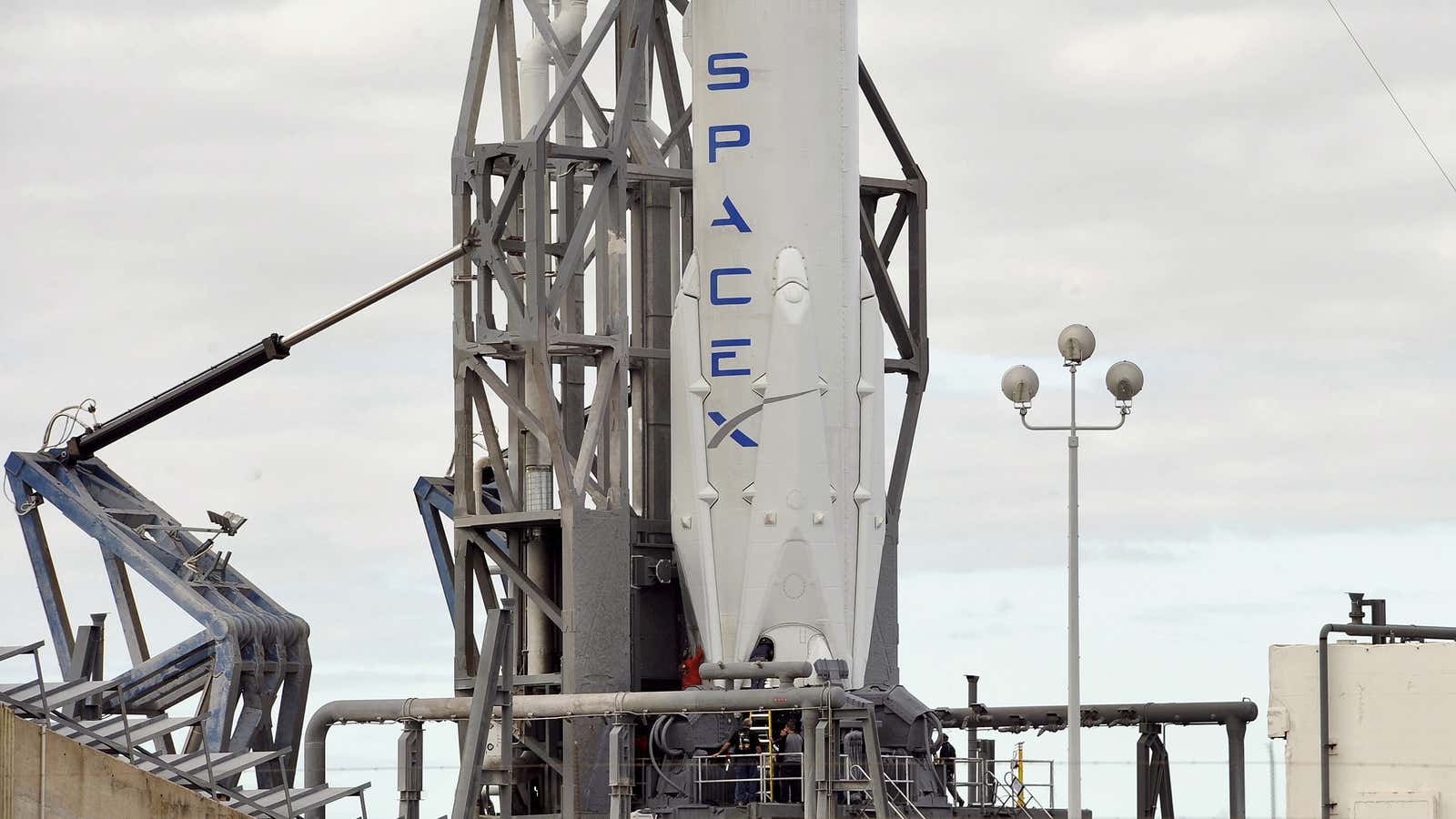SpaceX, Elon Musk’s rocket company, plans to launch a rocket to the International Space Station from Cape Canaveral, Florida today (April 8). Among its cargo will be fungi and live mice for experiments, along with materials for growing veggies in space.
But the craft will also ferry a privately-built expandable habitat that will become five times larger than its compressed size in about 45 minutes.
You can watch SpaceX’s live-stream of the mission here with us, ten minutes ahead of a launch expected at 4:43 p.m. US eastern time—that’s 9:43 p.m. in London and 4:43 a.m. in Hong Kong.
The Dragon spacecraft will be deployed about 10 minutes after liftoff and attach to the station about two days later. Should today’s liftoff be aborted, a backup launch window opens at 4:20pm US eastern time on April 9.
The inflatable habitat, known as the Bigelow Expandable Activity Module, will be tested over the next two years to see how such structures perform in space over time. If deployed successfully, it will be the first expandable space room occupied by humans in orbit. It’s possible that much larger versions—even inflatable moon bases—will follow in the years to come.
This NASA video shows how astronauts will attach, expand, and enter the habitat after it reaches the station. (First they’ll need to remove it from the Dragon’s trunk, which they’ll do using the station’s robotic arm.)
The Dragon will be carried to space via a Falcon 9 reusable rocket—a story in its own right. Last December a Falcon 9 made history by becoming the first rocket to go into orbital space and land safely back on Earth. Reusable rockets promise to change the economics of delivering objects to space—and make SpaceX a successful business. The Falcon 9 scheduled to launch today will attempt an experimental landing on a floating platform in the Atlantic Ocean.
Of course, there’s always the possibility that something will delay today’s launch. That has sometimes been the case before, due to technical problems. In late February, the company aborted three launches in four days thanks to some finicky new cooling technology.
